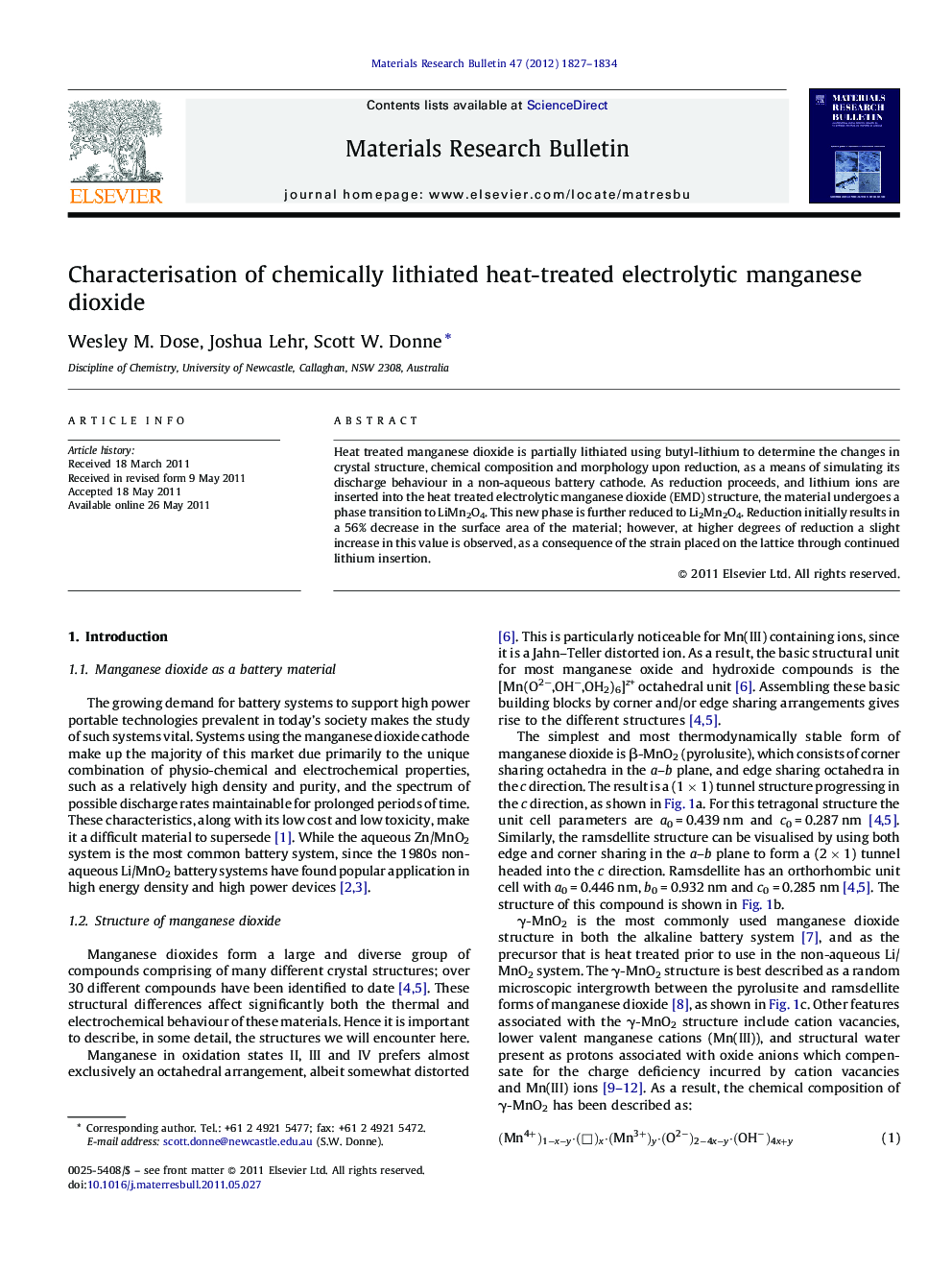| کد مقاله | کد نشریه | سال انتشار | مقاله انگلیسی | نسخه تمام متن |
|---|---|---|---|---|
| 1490201 | 992319 | 2012 | 8 صفحه PDF | دانلود رایگان |

Heat treated manganese dioxide is partially lithiated using butyl-lithium to determine the changes in crystal structure, chemical composition and morphology upon reduction, as a means of simulating its discharge behaviour in a non-aqueous battery cathode. As reduction proceeds, and lithium ions are inserted into the heat treated electrolytic manganese dioxide (EMD) structure, the material undergoes a phase transition to LiMn2O4. This new phase is further reduced to Li2Mn2O4. Reduction initially results in a 56% decrease in the surface area of the material; however, at higher degrees of reduction a slight increase in this value is observed, as a consequence of the strain placed on the lattice through continued lithium insertion.
Figure optionsDownload as PowerPoint slideHighlights
► Manganese oxides are a promising cathode material for lithium ion batteries. Here we examine the structural and morphological changes that occur upon reduction, and assess its impact on material performance.
► Upon reduction, MnO2 transforms into LiMn2O4, which is subsequently reduced to Li2Mn2O4.
► Significant morphological changes occur, particularly to the material porosity.
► This transformation for MnO2 has not been reported previously.
Journal: Materials Research Bulletin - Volume 47, Issue 7, July 2012, Pages 1827–1834